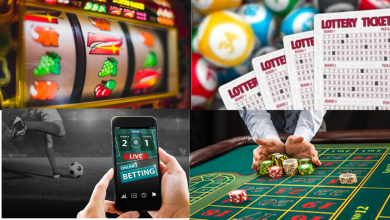Can You Be Blacklisted for Gambling Debt?

When it comes to gambling debt, many people wonder if they can be “blacklisted” due to unpaid debts. The term “blacklisted” is often used informally, but in South Africa, it’s a bit of a misnomer. So, can gambling debt lead to being blacklisted? Let’s break it down, understand how gambling debt impacts your credit, and explore how to deal with it effectively.

What Is “Blacklisting”, and How Does It Relate to Gambling Debt?
In South Africa, the term “blacklisted” used to refer to being placed on a list of individuals who were considered high-risk borrowers due to their poor credit history. However, the National Credit Regulator (NCR) stopped the use of the term “blacklisting” in 2011. Now, rather than being “blacklisted”, people are more likely to face negative entries on their credit report, which can affect their financial future.
So, can gambling debt result in a negative credit report? Yes, it can. Gambling debt is categorised as unsecured debt, similar to credit cards and personal loans. If you don’t repay your gambling debts, they can be reported to credit bureaus, such as TransUnion or Experian, which will negatively impact your credit score. This can make it harder to get loans, credit cards, or even rent a property in the future.
ALSO READ: Your Rights When Gambling Online in South Africa
How Gambling Debt Affects Your Credit Score
While gambling itself isn’t illegal, failing to manage your gambling debt can lead to serious financial consequences. Here’s how gambling debt can affect your credit:
1. A Negative Credit Report
Unpaid gambling debts, like any other unsecured debt, will show up on your credit report. This includes any defaults or judgements made against you by creditors. A negative credit report can stay with you for up to five years, even if you eventually pay off your debts.
2. Difficulty Securing Credit
If your credit report shows unpaid gambling debts, you may find it difficult to qualify for new credit. Whether it’s applying for a car loan or a mortgage, a bad credit history can make it challenging to get approved for new credit, and if you do, you may face high interest rates.
3. Higher Loan Interest Rates
Even if you’re able to secure credit, the terms you receive may not be favourable. Lenders may charge you higher interest rates because you are considered a higher-risk borrower due to your past credit history.
What to Do If You’re Struggling with Gambling Debt
If gambling debt is starting to impact your financial life, don’t panic. There are steps you can take to improve your situation.
1. Check Your Credit Report
The first step is to check your credit report for any negative entries related to gambling debt. You can request a free copy of your credit report from credit bureaus like Experian, TransUnion, or XDS. Reviewing your credit report will give you a clear picture of your financial standing.
2. Negotiate with Creditors
If you’re unable to make your gambling debt payments, it’s crucial to contact your creditors. Many gambling operators are willing to work with individuals who are experiencing financial difficulty. You might be able to negotiate a payment plan, reduced balance, or even a settlement offer. Being proactive can help prevent your situation from worsening.
3. Seek Debt Counselling
In more serious cases, it may be helpful to consult with a professional debt counsellor. South Africa has various organisations, such as the National Debt Mediation Association (NDMA) and Debt Rescue, which can help you develop a strategy to pay off your gambling debt. They offer free and confidential counselling to help you regain control over your finances.
4. Get Help for Gambling Addiction
If gambling is becoming a problem, seeking help is crucial. The South African Responsible Gambling Foundation provides support services, including free counselling and treatment for those who are struggling with gambling addiction. Taking steps to address the root cause of your debt can help you avoid future financial issues.
READ MORE: What to Do if You Suspect Illegal Gambling Near You
So, can you be blacklisted for gambling debt in South Africa? Technically, no. The term “blacklisting” is outdated, but unpaid gambling debts can still show up on your credit report, negatively impacting your credit score. The good news is that there are steps you can take to improve your financial situation. By checking your credit report, negotiating with creditors, seeking professional debt counselling, and addressing any gambling issues, you can regain control of your finances.



